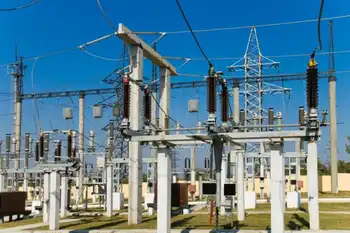Markets are broken, Pennsylvania officials told
By Associated Press
NFPA 70e Training - Arc Flash
Our customized live online or in‑person group training can be delivered to your staff at your location.

- Live Online
- 6 hours Instructor-led
- Group Training Available
Representatives of the manufacturers told the Pennsylvania Public Utility Commission during a public hearing that the inflated prices give power companies little incentive to generate electricity more cheaply in the deregulated markets.
In addition, they say, competition to provide better services and lower prices has not materialized, despite manufacturers and power companies having cited that as a potential benefit when they made the case for deregulation to state legislators in the 1990s.
Federal regulators, market operators and power plant owners tout competition as "a ruse for countering the growing opposition of consumers" to wholesale markets, said John P. Hughes, a vice president of the Washington, D.C.-based Electricity Consumers Resource Council, which represents companies from General Motors Corp. to Alcoa Inc. of Pittsburgh.
In part, Hughes and Robert Weishaar, a lawyer who represents industrial power users in the mid-Atlantic region, blamed a price premium that all power plant owners get as an incentive to build more plants. Despite the premiums, power companies have added little power from the cheapest sources, like nuclear and coal, Hughes said.
For now, most Pennsylvania consumers are protected from paying the price of wholesale electricity. But the decade-old rate caps that power companies were forced to accept in Pennsylvania as part of deregulation will expire in the next two years.
When that happens, local utilities will pass on the wholesale market prices. Pennsylvania's consumer advocate estimates that will send electric bills 20 to 63 percent higher, depending on the utility, for more than 4 million households and business owners.
The hearing was the second of three being held by the utility commission on the wholesale power markets. The first was October 23, and a third is scheduled for December.
In the October hearing, a representative of the power companies that supply electricity in the mid-Atlantic region defended the premiums, saying the prices are set fairly to ensure that there is enough power supply at all times.
Without them, the margin between demand and the region's power capacity was becoming dangerously thin and power plant owners were not covering their fixed costs, Glen R. Thomas told the utility commission. He called the mid-Atlantic market "competitive, well-functioning and fulfilling" its intended purpose.
Power companies say the impending price increase for Pennsylvania customers can be blamed on the rising cost of fossil fuels since price caps went into effect. But Hughes and Weishaar maintain that the power prices are rising more quickly in states that deregulated power markets.
As a result of deregulation, the utility commission regulates the distribution of electricity to customers, but not the price of electricity that is supplied by wholesale power markets. The Federal Energy Regulatory Commission regulates the wholesale power market, and the mid-Atlantic market is managed by PJM Interconnection, headquartered in suburban Philadelphia.
James Cawley, who chairs the Pennsylvania utility commission, said his panel is holding the hearings to educate members and become more effective advocates for the state's consumers.
Five months ago, the utility commission joined regulators from Maryland, New Jersey and Delaware in a complaint filed with FERC that accused PJM Interconnection of setting up market rules that enable power plant owners to charge unfairly high prices.
The prices, they argued, carry no obligation to build more power sources that could lower prices and would cost Pennsylvania's customers an estimated $5 billion in "unjust and unreasonable" costs on energy purchases between 2008 and 2011.












